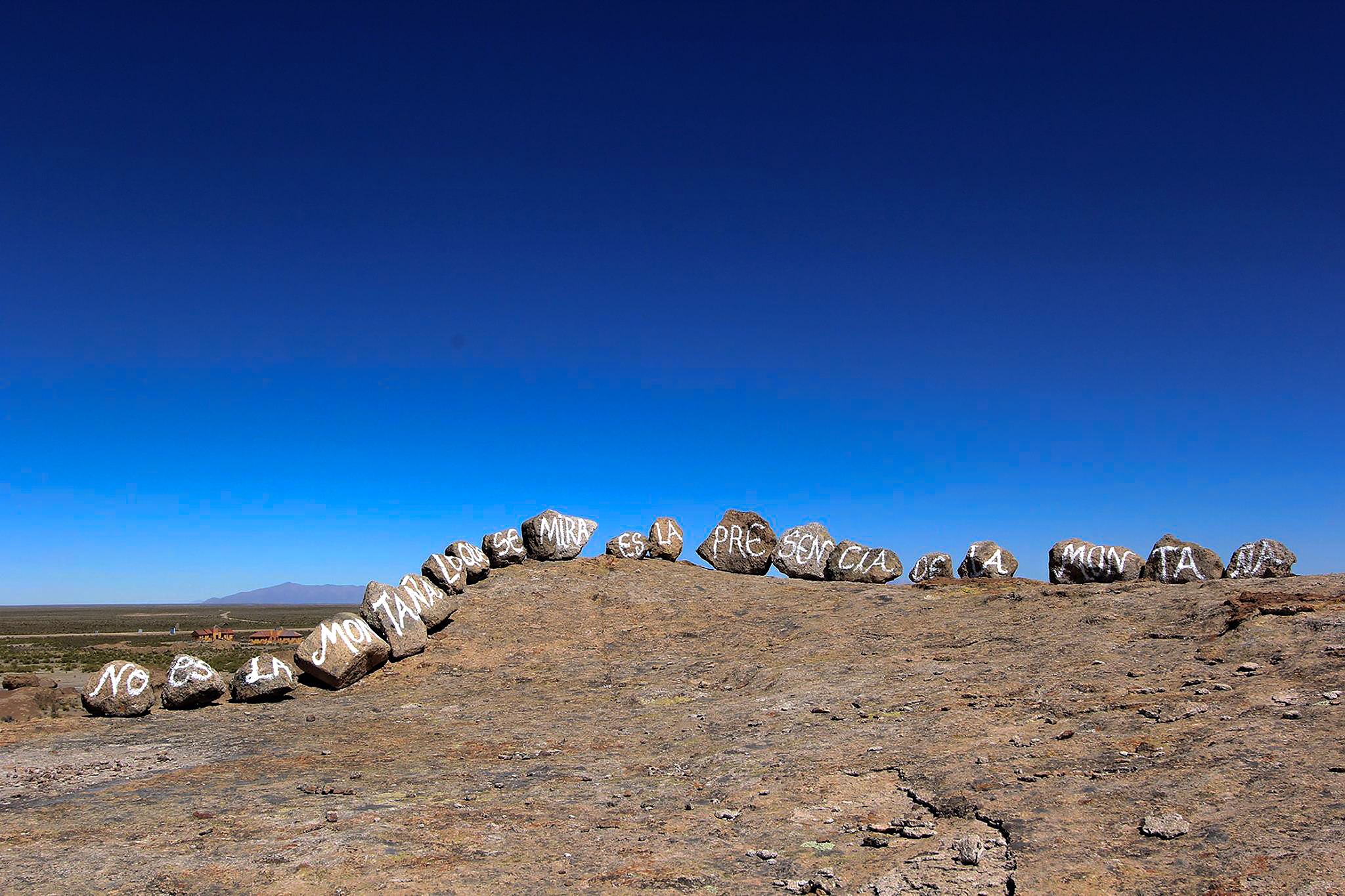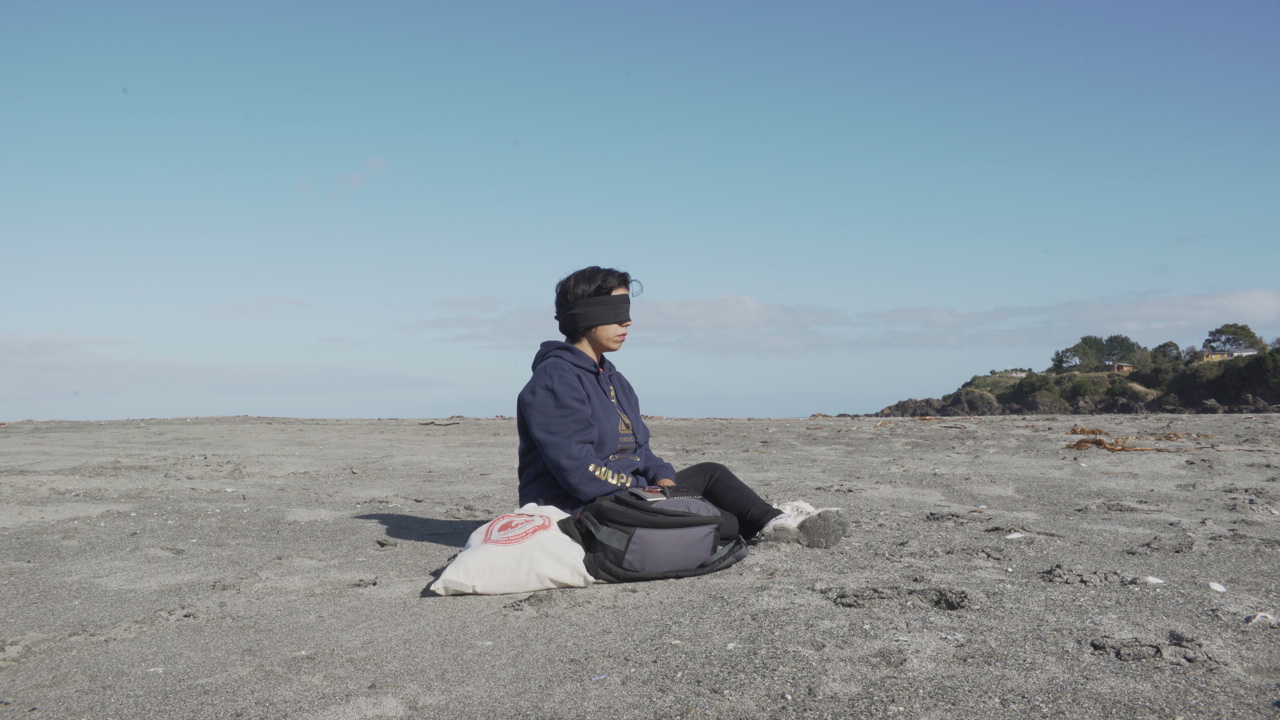Knowing in Order to Learn and Not for Dominating
09/09/2022
These initiatives are proposed as a place of life and production of subjectivities, impulse and energy in the face of the epistemological opening that we are experiencing at a global level [...] to stop commodifying knowledge as something which is possible to possess, and to work from a position of non-knowing.
Practices and Knowledge for the Self-Management of the Arts and the Territory
For a long time, my experience as a curator has been mostly linked to self-managed and non-profit artist-run spaces that seek to open exhibition possibilities to proposals that don’t have a place in the institutions, museums or art centers of the hegemonic circuit of the territories they inhabit. When I say that they don’t have a place, it is not that there is no possibility for these artistic proposals to exhibit in those spaces, but that the bureaucratic complexities, the hierarchical structure, and above all, the persistent colonial position of the institutions, generate a loss of meaning for the current discourses that are actively rethinking the ways in which the knowledge that emerges with art, as well as the diverse regimes of reality that coexist there, can be shared in an open way, generating modes of learning and sharing knowledge from a non-dominant and anti-colonial perspective.1
From there, many questions arise in search of elaborating alternative proposals for art exhibition and circulation throughout this continent invented as ‘America,’2 such as:
What challenges does reimagining the traditional exhibition format propose? What strategies can we use to diversify 'Latin American art,' fully recognizing the art produced by various minority communities? What are the advantages of a non-institutional approach that operates from situated knowledge? How should we approach notions such as 'chronology' or 'temporality' in the face of these regimes of reality that coexist in the same territory? What frictions and tensions should we seek between anti-colonial actions and decolonial thought?
In this text I’ve decided to bring together three initiatives of self-managed artist-run spaces that have caught my attention in recent years: Chawpi. Laboratorio de Arte y Creación, in Quito, Ecuador; Toda la Teoría del Universo (TTU), in Concepción, Chile; as well as an initiative that is just beginning but that I think it is important to make visible for being a pioneer in the link between art and rurality in central Chile: La Vieja Escuela. Artes y Cultivos, in the commune of Pichingal. Among them there are virtuous differences and points in common: each one operates according to the place where it is located, giving space to the situated knowledge that belongs specifically to their territories, populations, communities, geographies, histories, origins, and futures. Likewise, each one seeks to provide spaces for a more free creation, where culture is no longer understood as a filter through which we see the same world, but where as many cultures as worlds are possible.
In words of one of its founding members, visual artist José Luis Macas Paredes, Chawpi is an artistic-cultural space for experimentation, creation, research, training and exhibition that promotes the interaction of diverse audiences, actors and knowledges through an intercultural, critical and environmentalist approach. Chawpi is a Kichwa word that means "center as a meeting place." It articulates an agenda of exhibitions, training workshops and fairs developed through partnerships and collaborations that promote contemporary creation and the promotion of local production and consumption in a sustainable and supportive manner. Honoring these roots, Chawpi teaches Kichwa language classes as a way to vindicate its cultural richness and validity, as well as a continuity proposal of knowledge and practices of the territories.
In turn, as Elisa Balmaceda and Susana Chau tell us on behalf of the Toda la Teoría del Universo team, composed of eight people from different creative fields, TTU is collectively thought and operates as a cultural center that since 2015 aims to promote the exchange of knowledge and experiences around arts and technologies. They research hybrid areas of cultural making and knowing, developing festivals, meetings, workshops and residencies, encouraging open dialogue between artists, managers, makers, collectives, communities and audiences, to deepen the transdisciplinary exchange and generate networks, both territorially as well as in Latin America.
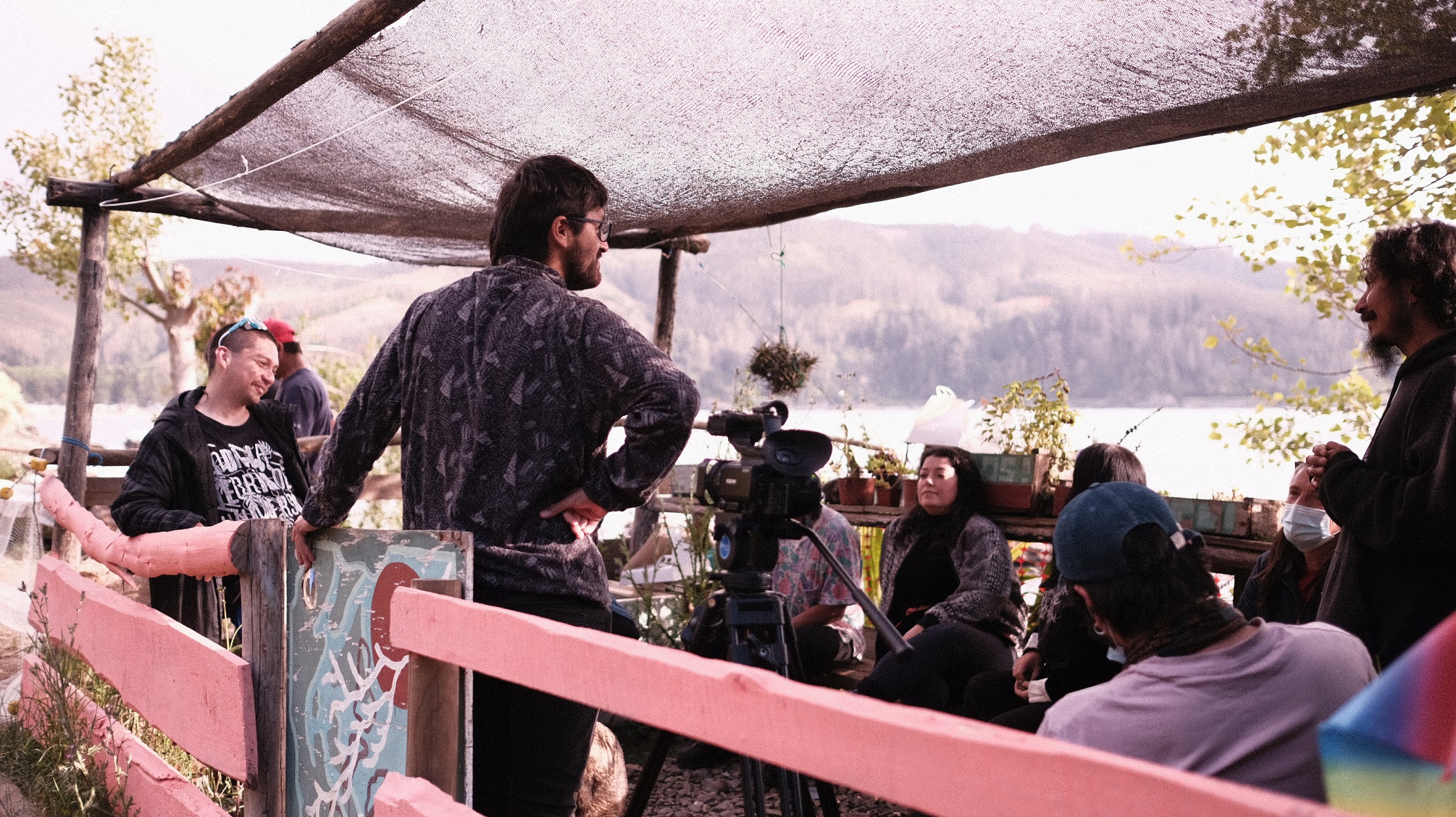

Not many kilometers from there, in 2020, Gabriela Yavar and Francisca Benítez—mother and daughter—founded La Vieja Escuela. Artes y Cultivos in Pichingal, a small town in the Central Valley of Chile whose main activity is agriculture. It was born as a space to support and disseminate artistic creation in relation to the value of knowledge and peasant work, as well as to encourage respect for nature. The project is developed in an adobe building that housed the first public school of Pichingal from its creation in 1906 until 1965, when it moved to its new and current headquarters. Among other reasons, this is why this project has a special closeness to the local community, which is the main connoisseur of rural history and practices.
These three initiatives are proposed as a place of life and production of subjectivities, impulse and energy in the face of the epistemological opening3 that we are experiencing at a global level. It becomes urgent to transform our ways of knowing and to become people who accept the challenge of thinking with others and cultivate ways of "knowing to learn and not for dominating,"4 as the anthropologist Marisol de la Cadena would say; of knowing without having to apprehend, without conquering in order to incorporate and feel that one possesses (something) as knowledge.
In other words, to stop commodifying knowledge as something which is possible to possess, and to work from a position of non-knowing, an epistemic position where we can recognize that other regimes of reality are possible, but not necessarily all of us can or should have access to them, and not for that reason they cease to exist or are less relevant in the construction of what we call the present.
In recent years, both Chile and Ecuador have been experiencing highly complex political processes: in Chile, with an ongoing constituent process, and Ecuador, with a social outburst led by the indigenous movement. In both cases the demands coincide in the urgency of social justice, the recognition of the plurinationality of their territories, and land rights that seek to put an end to a century of extractivism.5 For its part, the pandemic was also a hard blow for the artist-run spaces, making it necessary to rethink many matters. In this context, Chawpi, in collaboration with the millenary Kitu collective, has carried out urban intervention laboratories during the Andean festive calendar where, apart from having different cultural actors who shared their experience within the equatorial Andean ancestry, a re-reading of contemporary urbanism was carried out according to the sacred surrounding geography.
At the same time, in the province of Imbabura, they’ve developed the Raymipacha residency in collaboration with the Yama Collective and cultural actors of the Santa Barbara community. Based on a Latin American convening, they approached the performative within the festive rituality of IntyRaymi celebrated during the month of June. As José Luis points out, "it is interesting to see how in each territoriality we experience these solar cycles, the languages, meanings, and situated knowledge that are generated at a cultural level, and where each year there is an update mediated by the ritual, which moves away from a purist idea of culture and opts for a 'code-fagia' to integrate the diversity that participates in the festival without leaving aside deeper layers of the ritual where the communities affirm themselves, both corporally and spiritually with the environment."6
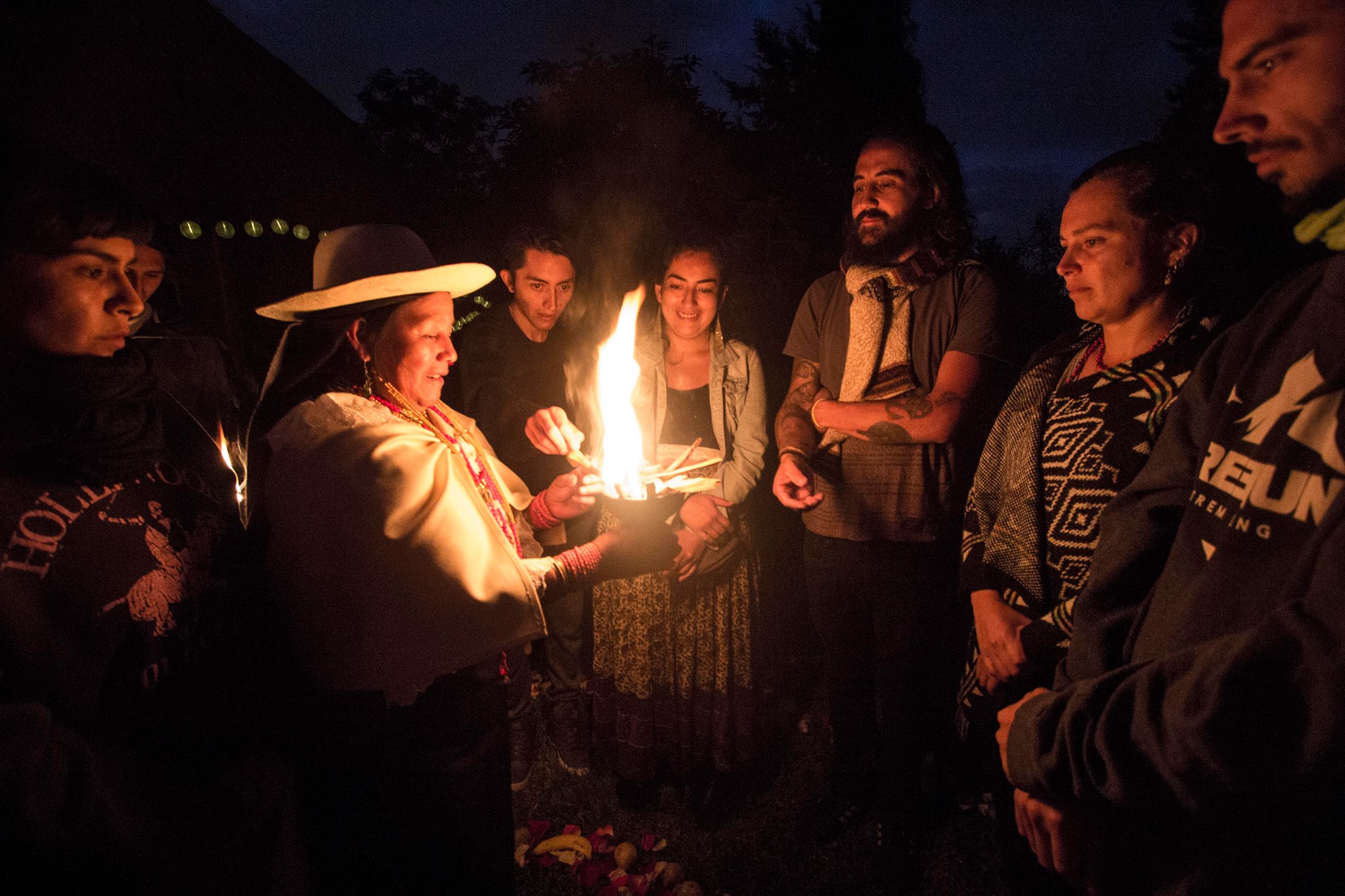
In Concepción, the team of Toda la Teoría del Universo has been organizing for several years the Latin American Festival of Arts and Technologies, one of the central activities of the collective. Its most recent edition focused on human time versus natural time, which they themselves point out as the past facing the future mediated by the present in modern and contemporary social constructions, versus the constant cyclical time of nature and the universe. Another relevant activity are the international residencies, where through an annual open call they receive artists to work for 45 days around axes relevant to the territory and the various communities that inhabit it. Its next edition, to be held in November 2022, has as its axis the reflection on bodies, territories and machines. Over the years, TTU gained a place in the local scene, decentralizing the contemporary art circuit and making visible the need to generate space for educational work; therefore they have focused special energy on the creation of workshops open to the community to promote new links and forms of relationship through art. "For us, art is the main mediating link, a tool, a technology to get to know each other, perhaps to recognize each other and build bridges. We feel that the cultural fabric in our country is such a sensitive place, that we have to be careful, be subtle and give space to time, since no process is too short," says Susana.7
At Pichingal, educational work also takes on special relevance. As Francisca explains, "from the beginning we have proposed to take care of the dialogue with the community and the environment, since much of what we do is born from the maintenance and care of this place that we want to preserve and activate as a meeting place and, at the same time, as a living repository of the collective memory of Pichingal. The way we approach local knowledge and practices is with our 'hands in the dough', closely linked to natural cycles of planting, harvesting, etc., learning from experience and from all the people who pass through the Old School.8" Among the activities carried out recently are the experimental workshops with family and neighbors, where there was an exhibition of maqui (Aristotelia chilensis) paintings made by children, extracting the material from fruits of the trees in the neighborhood, and sculptures made with the large fruit pods and small coconuts that come off the Chilean palm (Jubaea chilensis). Another relevant instance was a seed exchange meeting, which like the previous activities, explored possible relationships between the arts and crops, to create a multigenerational meeting space, stimulate the imagination of the community, and educate each other in the care of our environment. All this will gradually coexist with projects by contemporary artists invited to work on site.
The first experience was RIEGO by Francisca Benítez, where media such as video, photography and drawing took over the facilities of the adobe house that holds the Old School, documenting the local practices of irrigation by canals; this is a crucial issue for Pichingal, because with the drought, the disappearance of knowledge, technification, and the potential upcoming constitutional changes, it is in the process of great transformations. "The exhibition was an opportunity to collectively reflect on the topic and listen to older adults. Several shared stories of the Old School when it was a rural school and they studied there," says Francisca.
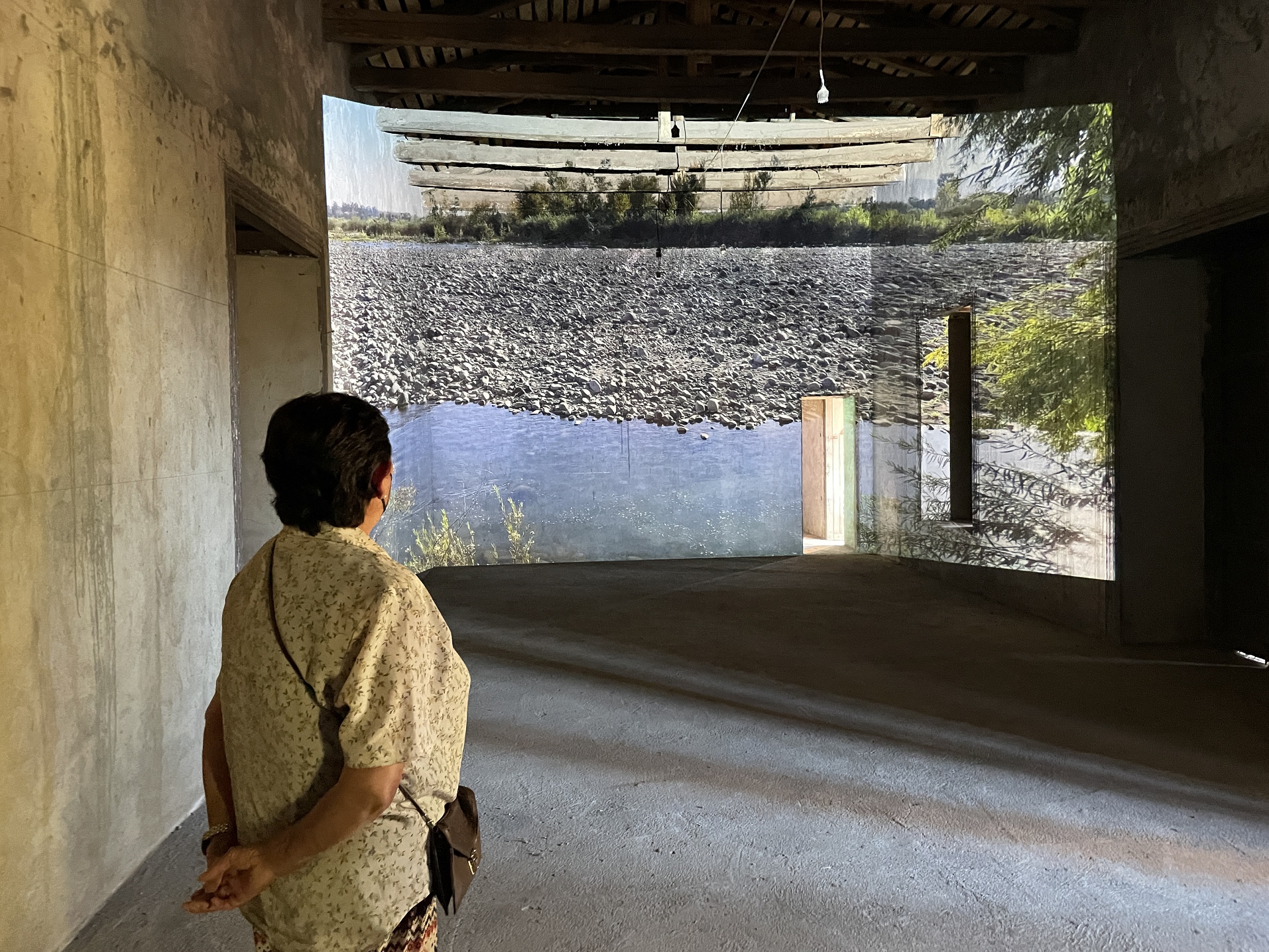


Activating the political potential of art to change worlds, in each of these initiatives we can perceive common resistance strategies linked to non-extractive forms of learning that promote respectful exchange alternatives between humans and all that is more than human in each of their territories. These practices have at their core the 'good living,' a concept widely spread among Andean communities as Sumak Kawsay which offers an opportunity to propose other worlds and ways of doing/thinking that guide us to a way of living, to a life in harmony and balance with the Earth.
It is there where art has the possibility to free itself from its western epistemologies, to open itself to forms of knowledge, to wisdom and practices that contribute to the creation of anticolonial and non-dominant ethical-political processes that bet on the collective and the community in relation to their territories.
